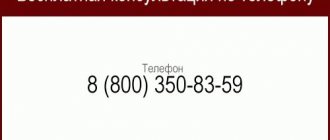Administrative fines may be levied for various offenses committed by citizens. They are issued by police officers, courts, traffic police officers, tax inspectorates and other government agencies. Their size can vary significantly depending on the existing offense. It is possible to pay an administrative fine online, for which you can use the official websites of the structures that issued the resolution, as well as universal services provided by online banking or electronic money.
Pros of using the Internet
Many people who receive receipts for payment of fines are thinking about where to pay the fine for an administrative offense. To do this, you can use the services of post offices or banks, as well as manually enter details through ATMs. But to carry out these processes you will need to leave the house.
The best way is to use different online services. Their use has many undeniable advantages:
- no need to leave home;
- funds are transferred to the desired account promptly;
- either there is no commission at all, or it is insignificant.
Almost any service on the Internet makes it possible to receive an electronic receipt confirming payment, so this document can be easily printed and stored as proof of the transfer of money.
Paying a fine online has certain advantages.
How to pay an administrative fine to the Federal Tax Service based on a decision
Having considered the issue, we came to the following conclusion: The administrative fine imposed for violation of currency legislation must be paid in full by the person held administratively liable.
Rationale for the conclusion: Subparagraph “a” of paragraph 6 of Art. 1, part 1 art. 13 of Federal Law No. 401-FZ of November 30, 2016 (hereinafter referred to as Law No. 401-FZ) in paragraph 1 of Art. 45 of the Tax Code of the Russian Federation, amendments have been made according to which another person can pay the tax for the taxpayer. At the same time, no restrictions have been established regarding categories of persons, that is, organizations and individuals (clause 2 of Article 11 of the Tax Code of the Russian Federation) who have the right to pay taxes for the taxpayer, as well as taxpayers for whom other persons have the right to pay taxes. . The fact of payment of tax for a taxpayer by a third party results in the termination of the corresponding obligation of the taxpayer (clause 1, clause 3, article 44, subclause 1, clause 3, article 45 of the Tax Code of the Russian Federation as amended by Law No. 401-FZ). At the same time, the person who paid the tax for the taxpayer will not be able to demand the return of the amounts paid in this way from the budget system of the Russian Federation (clause 1 of Article 45 of the Tax Code of the Russian Federation as amended by Law No. 401-FZ). Taking into account the provisions of paragraph 8 of Art. 45 of the Tax Code of the Russian Federation, we can come to the conclusion that other persons can now also pay fees, penalties and fines for taxpayers (payers of fees) * (1). However, it should be taken into account that these changes relate exclusively to tax legal relations, which are understood as power relations regarding the establishment, introduction and collection of taxes and fees in the Russian Federation, as well as relations arising in the process of tax control, appealing acts of tax authorities, actions (inactions) their officials and holding them accountable for committing a tax offense (Clause 1, Article 2 of the Tax Code of the Russian Federation). In this case, a tax offense is recognized as an unlawful act (in violation of the legislation on taxes and fees) (action or inaction) of a taxpayer, insurance premium payer, tax agent and other persons, for which liability is established by the Tax Code of the Russian Federation. Types of tax offenses and liability for their commission are provided for in Chapters 16 and 18 of the Tax Code of the Russian Federation. That is, the possibility of payment of penalties and fines by another person for a taxpayer is available only if he has committed an offense specified in the indicated chapters of the Tax Code of the Russian Federation. Violation of currency legislation constitutes not a tax, but an administrative offense, the qualifying features of which are disclosed in Art. 15.25 Code of Administrative Offenses of the Russian Federation. In other words, according to current legislation, liability for violation of the currency legislation of the Russian Federation and acts of currency regulation authorities should be classified as administrative (not tax). Accordingly, the application of tax law to relations arising from administrative offenses is not permissible, since each branch of law regulates only those relations that constitute its subject. In accordance with Part 1 of Art. 3.1 of the Code of Administrative Offenses of the Russian Federation, administrative punishment is a measure of responsibility established by the state for committing an administrative offense and is used to prevent the commission of new offenses both by the offender himself and by other persons. By virtue of Part 1 of Art. 32.2 of the Code of Administrative Offenses of the Russian Federation, an administrative fine must be paid in full by a person brought to administrative responsibility no later than sixty days from the date the decision to impose an administrative fine comes into force, except for the case provided for in Part 1. 1.1 or 1.3 tbsp. 32.2 of the Code of Administrative Offenses of the Russian Federation, or from the date of expiration of the deferment period or installment plan period provided for in Art. 31.5 Code of Administrative Offenses of the Russian Federation. In the absence of a document indicating the payment of an administrative fine, and information about the payment of an administrative fine in the State Information System on state and municipal payments, after the expiration of the established period, the judge, body, official who issued the decision, prepare a second copy of the specified resolution and send it within ten days (and in the case provided for in Part 1.1 of Article 32.2 of the Code of Administrative Offenses of the Russian Federation - within one day) to the bailiff for execution in the manner prescribed by federal legislation. If a second copy of the resolution imposing an administrative fine is produced in the form of an electronic document, the legal force of which is confirmed by an enhanced qualified electronic signature in accordance with the legislation of the Russian Federation, the specified second copy is sent to the bailiff in electronic form via information and telecommunication networks. In addition, an official of a federal executive body, a structural unit or territorial body, or another state body that examined a case of an administrative offense, or an authorized person of a collegial body that examined a case of an administrative offense, draws up a protocol on the administrative offense provided for in Part 1 of Art. 20.25 of the Code of Administrative Offenses of the Russian Federation, in relation to a person who has not paid an administrative fine (Part 5 of Article 32.2 of the Code of Administrative Offenses of the Russian Federation). From the above requirements of the law it follows that the execution of an administrative penalty cannot be carried out without the personal participation of the person held accountable, that is, it is inextricably linked with his personality. We believe that payment of a fine provided for by the sanctions of the Code of the Russian Federation on Administrative Offenses of the Russian Federation by another person does not relieve the offender brought to administrative responsibility from the obligation to bear the negative consequences of his unlawful behavior. Otherwise, the entire meaning of administrative punishment is lost, in particular its inevitability or inevitability (see, for example, the decision of the Arbitration Court of the Samara Region dated 05/27/2016 in case No. A55-7373/2016, the resolution of the Syzran City Court of the Samara Region dated 01/09/2013 ( Extraction)). The legislator does not allow any exceptions from this rule, except in cases where a minor who does not have his own income is brought to administrative responsibility. In such situations, the fine is collected from the parents of the minor or his other legal representatives (Part 2 of Article 32.2 of the Code of Administrative Offenses of the Russian Federation). But they, in turn, are responsible not for the unlawful behavior of their ward, but for their own guilt, which is expressed, among other things, in the lack of proper control over him.
Deadlines for transferring funds
It is important to understand not only where you can pay a fine for various offenses, but also when this process should be carried out. Only 60 days are provided for this, after which the organization that imposed the penalty can go to court to force the collection of funds.
Only 10 days are given to appeal the decision, therefore, if a citizen does not agree with the penalty, he needs to promptly file a complaint.
If there is a traffic police fine, then when transferring funds within 20 days after drawing up the resolution, you can count on a discount equal to 50%.
Postings when calculating fines and penalties for taxes
There are opinions in accounting circles that account 91 Other expenses can also be used to display accrued penalties and fines. However, in this case, a permanent tax liability arises, which somewhat complicates the process of accounting for them.
We recommend reading: How to activate a student’s social card
To display the costs incurred that arise when fines and penalties are calculated, account 99 Profit and loss is used. For convenience, it is divided into two subcontos - penalties and fines. The debit of this account corresponds with the corresponding tax payment, which is displayed on the credit of accounts 68 and 69.
Methods of paying fines
There are many ways to pay an administrative fine. Some involve visiting different establishments or using ATMs, while others can be done at home, which requires only a suitable device and Internet access.
Any method has both pros and cons, so citizens independently choose the best option for themselves.
Application of online banking
The ability to remotely manage funds in bank accounts is offered by many large banks. This option is called online banking. It has many functions and capabilities, so you can pay off debts, transfer funds for housing and communal services or pay fines.
How to pay a court fine using this method? To do this, follow the following steps:
- first you need to connect online banking at the bank where the citizen has an open account;
- Next, you should log in to the system by entering your username and password, as well as the code from the SMS message sent to your registered phone number;
- in your personal account, select the section with fines, after which you can enter various data into the search bar, for example, the number of the decision or driver’s license, if the court decision was made on a traffic police fine;
- after finding the required payment, funds are transferred from the account to pay the fine;
- After depositing money, a receipt will remain in your personal account, which can be easily printed if necessary.
If you cannot find the required payment, you will have to manually enter the details. After this, the card from which the funds will be debited is selected. The transaction is carried out with a commission.
Not all banks allow you to pay administrative fines using online banking, so you should make sure in advance that you can use this method.
You can pay the fine through online banking or payment systems
Payment through the Yandex.Money service
If a citizen does not want to leave home, but at the same time he has a wallet in the Yandex.Money system, which contains a sufficient amount of funds, then he can make a payment using this service. How to pay a police fine this way? To do this, the following steps are implemented:
- You will first have to log in to the site to gain access to the virtual wallet;
- then money is transferred to the account from a bank card or other methods if the required amount for payment is not available;
- select a section called “goods and services”;
- there is a subsection “Fines”, and the name may be slightly different in other electronic money systems;
- the name of the organization where the money will be transferred is written down, and it is also advisable to enter its TIN;
- information about the existing payment is indicated;
- Before making a direct payment, you should make sure that all entered data is correct.
The operation is confirmed by a special code that will be sent as an SMS message not to the phone number of the wallet owner.
In addition to Yandex.Money, you can use other electronic money services, which include WebMoney or Qiwi.
Using the State Services website
If a citizen is registered on the State Services portal and has also confirmed his identity in an official way, then in his personal account of this service he can immediately see what fines he has. Additionally, you can view all issued decisions.
With the help of State Services, you can not only view existing fines, but also pay them. Paying Ministry of Internal Affairs fines online through this service is considered a simple process:
- Initially, you need to log in to the resource by entering your username and password;
- Next, it is checked whether the required fine is available in your personal account;
- if it is missing, then it will have to be found;
- at the top there are several sections, among which you can select the “Payment” subsection;
- a new page will open containing several sections: “Car fines”, “Tax debt”, “Judicial debt”, “Utilities” and “Payment by receipt”;
- if you have a receipt or other payment document, you can find the required fine by the protocol or resolution number by selecting the last section;
- if there is no receipt, the required section is selected depending on the type of fine, after which information about the payer is entered, for example, TIN, driver’s license number or other information;
- as soon as the required fine is found, click the “Pay” button;
- From the proposed options, the optimal method of depositing funds is selected, for which you can use electronic money or funds on a bank card;
- the payer's details are indicated;
- payment is confirmed.
Through the State Services portal you can check for outstanding fines and pay them
After completing these actions, the debt will be eliminated. Information about the transfer of funds will appear in your personal account within two days. Additionally, it will be possible to print out a receipt, since if enforcement proceedings have already been started, you will have to show the bailiffs evidence of the absence of debt.
Application of ATM
Often citizens do not have the opportunity to use the Internet and various online services. Under such conditions, you can transfer funds to pay the fine using ATMs of different banks.
There are three ways to do this:
- The barcode that is on the receipt or decree is used, on the basis of which all data will be entered automatically. Therefore, you just need to transfer the required amount from a card or by depositing cash.
- A search is carried out by court order or by the name of the payer, after which funds are deposited for payment. The details are entered manually, and during this process you must be careful, since an error in even one digit will lead to the fact that the funds will not be sent to the desired institution.
Any terminal has sections designed to pay taxes, fines or duties. Therefore, first, the desired type of payment is selected, after which the details from the available documents are entered. The exact amount of the fine is specified, and the entered data is checked. Next, the funds are transferred to the selected institution.
For the transaction performed, a commission must be paid, depending on the payment amount. If you only deposit the amount to pay the fine into the terminal, the payment will not go through due to the lack of money to pay the commission. The ATM prints a receipt, which you should keep as it serves as confirmation of the deposit.
You can pay an administrative fine through a bank cash desk
Appeal to bank employees
If a person does not know where to pay fines, then they can contact employees of various banking institutions directly, who will make the payment themselves. To do this, follow the following steps:
- any suitable bank is selected;
- the employee of the institution is given a resolution, court decision or receipt;
- the specialist enters the necessary details manually, and in addition he will require a passport from the payer in order to enter data about him into the computer;
- funds can be transferred to a specialist in cash, and they can also be debited from an account opened with this institution;
- After payment, the specialist issues a check.
For such services, the bank charges a commission, the amount of which depends on the amount of the fine. Similar actions are performed when contacting post office employees.
Results
The rules for filling out payment order details for paying fines are listed in Appendix 2 to Order No. 107n of the Ministry of Finance of the Russian Federation. The payment for the fine must be filled out correctly, otherwise the bank may not accept it. And in case of errors in the details that are significant for crediting the payment, the Federal Tax Service may classify it as unclear.
If you doubt the correctness of filling out the details of the payment order, then remember that the Tax Code of the Russian Federation in paragraph 6 of Art.
32 obligated the tax authorities to provide all the necessary information to fill out orders for the purpose of paying taxes, fees, penalties and fines. Therefore, you can request all the necessary information from your tax office. You can find more complete information on the topic in ConsultantPlus. Free trial access to the system for 2 days.
What to do if you don't have a receipt
Often citizens simply lose the orders or receipts necessary to pay the fine. In this case, you must contact the organization directly that received the penalty. Employees of this institution will be able to print the new document. To do this, the citizen will only need a passport.
After receiving the document, you can use it to pay the fine in different ways. To do this, you can contact a bank or post office, and the details can be transferred to the terminal or to different services when paying online. Also, if you lose documents, you can go to the official website of the organization that imposed the fine. On this resource you can find in the public domain the details by which payment is made.
If the fine is not paid, the organization that demanded the recovery may go to court
Consequences of failure to pay a fine
If citizens are negligent in paying fines, this will lead to negative consequences. The organization that applied the penalty will file a claim in court. Based on the court decision, enforcement proceedings will be opened. Next, it is the bailiffs who will be responsible for collecting funds.
Bailiffs can seize bank accounts, after which funds will be confiscated. Specialists may impose a ban on leaving the country, and may also completely confiscate property sold at auction. The proceeds from this process are used to pay off the debt.
Thus, if you figure out how to pay an administrative fine via the Internet by name, order number or court decision, then you won’t even need to leave your home to transfer funds. If you do not have access to the network, you can use standard methods that involve contacting bank or post office employees. Details can be entered manually at terminals or ATMs.
Basis of payment when paying a fine to the tax office according to the decision of the Federal Tax Service
Article 199 of the Criminal Code of the Russian Federation applies to officials - managers and accountants of organizations that prepare financial statements.
Sometimes employees who participate in fraudulent actions against the Federal Tax Service can be recognized as assistants. Grounds: non-payment of taxes in the amount of over 15,000,000 rubles for three years. Punishment is a fine of up to 500,000 rubles* or imprisonment for up to 6 years. Let's look at how to fill out a payment order to pay an administrative fine using a specific example. In IP "Zvezdin I.L." An audit was carried out, as a result of which the tax inspectorate determined that the company did not pay additional VAT. Based on these violations, the authorities sent demand No. 14-44/34124 dated January 28, 2020 for the payment of arrears, penalties and fines. Document UIN 42214533211348892011. Payer details:




